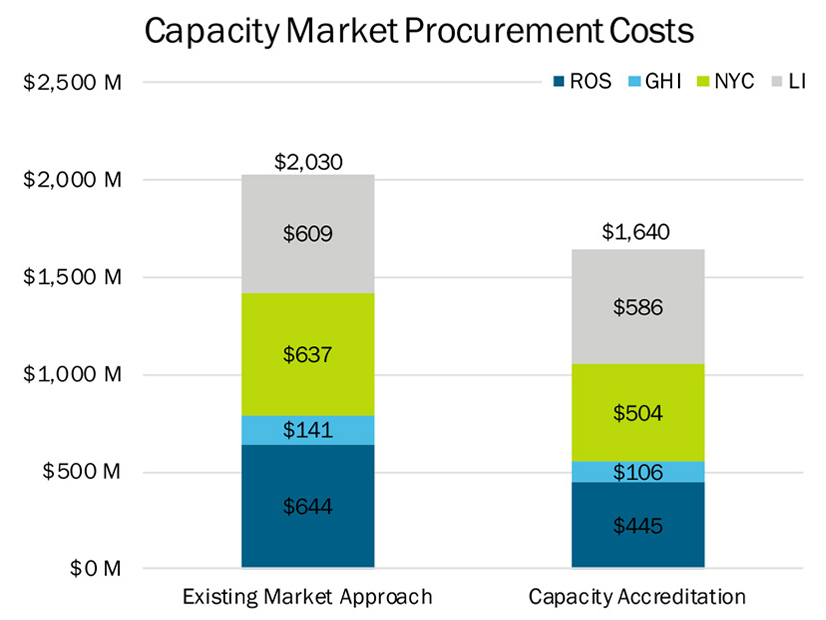RENSSELAER, N.Y. — NYISO stakeholders last week expressed reluctance to approve the ISO’s proposed implementation of its new capacity accreditation construct, with some saying they did not fully understand all of the changes and others saying it would be applied unequally.
The proposed revisions include the implementation details and technical specifications necessary for establishing capacity accreditation factors (CAFs) and capacity accreditation resource classes (CARCs), such as updated calculations for translation factors, demand curves and resource-specific derating factors.
Although the proposed revisions were ultimately approved, several stakeholders at the Business Issues Committee meeting Wednesday opposed the motions emphatically.
Jay Goodman, an attorney with Couch White, said his clients don’t oppose the capacity accreditation project outright but are “concerned with committing to implement it by May 1, 2024,” because it “will not be applied equally and accurately to all capacity providers at that time.”
Goodman said that they “perceive the capacity accreditation process as a work in progress” and that “numerous outstanding issues should be addressed or resolved prior to this vote taking place.”
They are also concerned that all thermal units will be treated as a single CARC, despite them having a “diversity of operating characteristics,” he said.
Daymark Energy Advisors CEO Marc Montalvo, representing the Utility Intervention Unit, explained that his abstention was “not because of a lack of faith in the ISO or the quality of their work” but “as much as a timing issue,” as well as a “feeling that [stakeholders] do not yet have a complete understanding of all the moving parts.”
Adam Evans, a staffer at the New York Department of Public Service, asked that “if there is remaining work that needs to done, then why would it not be included in what folks are voting on today?”
Doreen Saia, an attorney with Greenberg Traurig, recommended that NYISO edit the motion to avoid this “devolving into conversation about project prioritization” and alleviate concerns raised by stakeholders.
With guidance from Saia, NYISO then edited the motion recommending approval by the Management Committee and Board of Directors to say that the ISO is committed to addressing the capacity accreditation work plan as presented and any associated enhancements as necessary.
The proposed revisions now go to the MC this Wednesday. NYISO anticipates filing the summary of the final capacity accreditation implementation details with FERC within 90 days of MC approval.
Aggregated Hybrid Storage
The BIC also voted to recommend that the MC approve NYISO’s proposed tariff modifications that support the market participation of aggregated hybrid storage resources (HSR), generators co-located with storage resources that are all behind a single point of injection.
The changes would incentivize developers to couple generators with storage resources and, also, update the co-located storage resources (CSR) to allow for additional use cases, such as limited run-of-river hydro or landfill gas.
NYISO is targeting the third quarter of 2023 to file tariff modifications with FERC, anticipates making necessary software design updates throughout 2023 and plans on fully implementing the changes in 2025.



